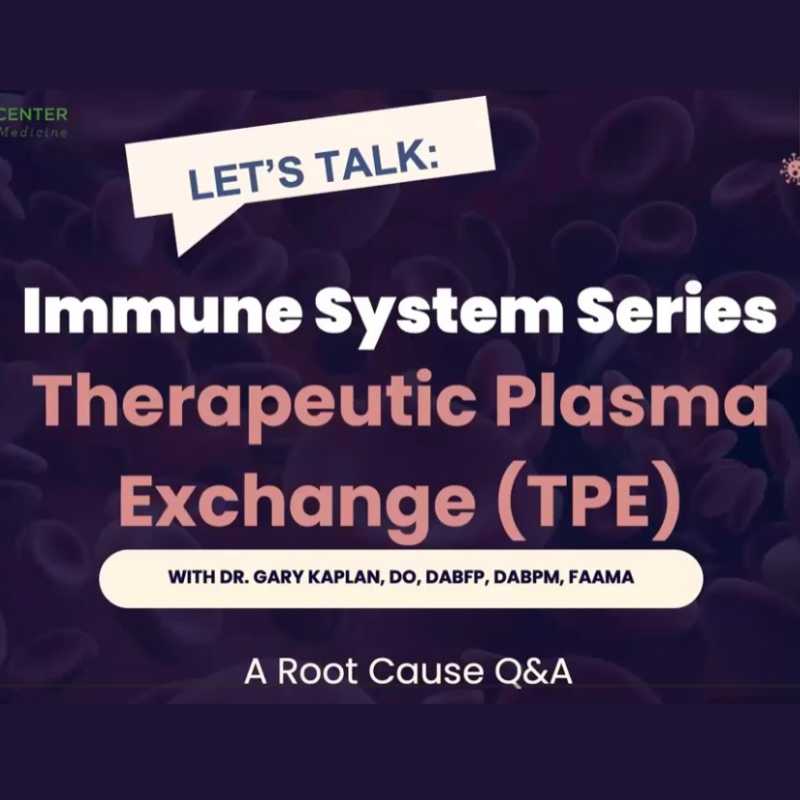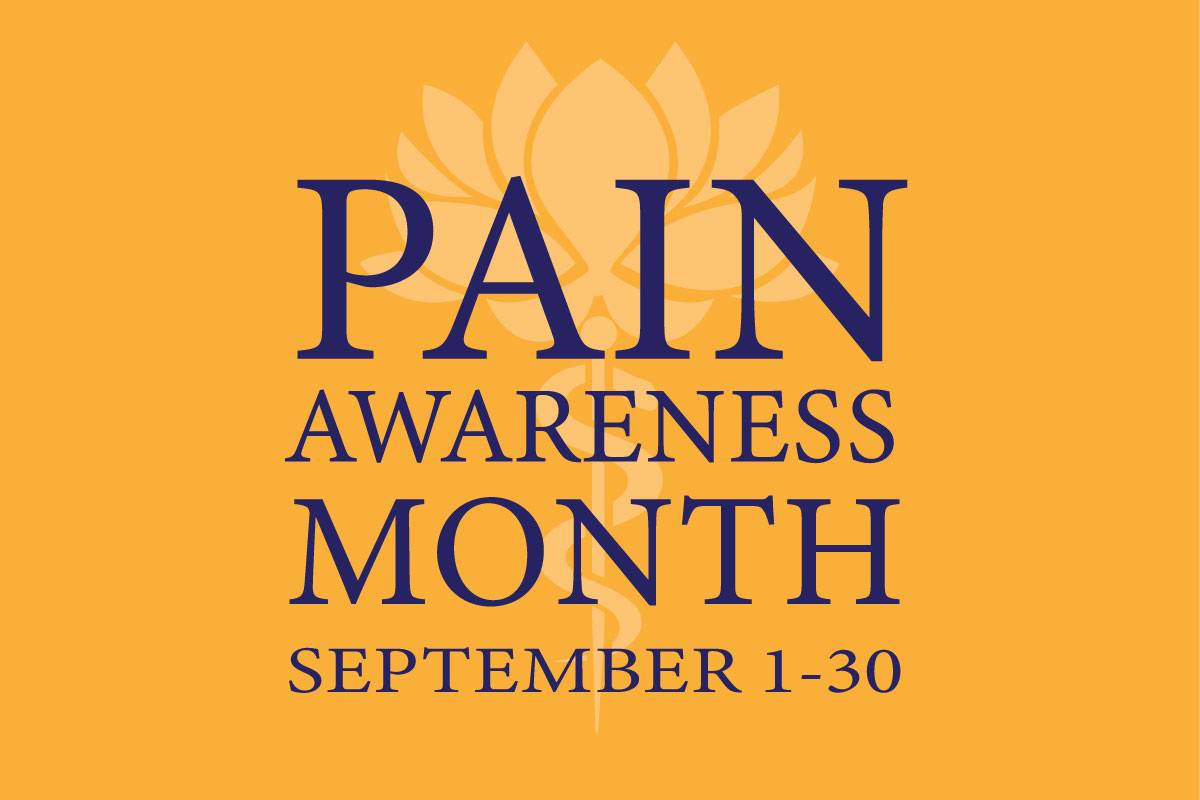
5 Ways We Can Keep Your Immune System Strong
December 10, 2025/by Kaplan Center
Want to Take Your Workout to the Next Level Next Year? These Tips Can Help
December 8, 2025/by Kaplan Center
Dr. Kaplan’s Dos and Don’ts of the Holiday Season
December 3, 2025/by Kaplan Center
Let’s Talk Webinar – A Root Cause Q&A
December 2, 2025/by Kaplan Center
Navigating Holiday Meals with Gut Issues: Simple Tips for a Comfortable Season
December 1, 2025/by Chardonée Donald, MS, CBHS, CHN, CNS, LDN
Craniosacral Therapy for TMJ | Say Goodbye to the Daily Grind
November 19, 2025/by Patricia Alomar, M.S., P.T.
From Compassionate Care to Personal Healing: A Letter to My Patients
November 18, 2025/by Kaplan Center
8 Steps to a Healthier Gut—and a Longer, Healthier Life
November 18, 2025/by Kaplan Center
Mid-Life Irritability & Fatigue Improved by Hormonal Balancing
November 13, 2025/by Lisa Lilienfield, MD
From Challenges to Change: Dr. Kaplan on Healthcare’s Biggest Challenges
October 29, 2025/by Kaplan Center
Overlooked Dangers of Mold Exposure and How to Stay Safe – Dr. Kaplan Talks to WUSA9
October 27, 2025/by Kaplan Center
Let’s ‘Fall’ Into Wellness: A Nutritionist-Approved Immune-Boosting Recipe for Cold and Flu Season
October 13, 2025/by Chardonée Donald, MS, CBHS, CHN, CNS, LDN
PANS/PANDAS – When Sudden Symptoms Signal Something More
October 9, 2025/by Kaplan Center
Beating Burnout, A Nutritionist’s Perspective
October 1, 2025/by Chardonée Donald, MS, CBHS, CHN, CNS, LDN
3 Things That Can Happen After Stopping GLP-1s
September 11, 2025/by Chardonée Donald, MS, CBHS, CHN, CNS, LDN
What Families Need to Know About COVID and Flu Season
September 3, 2025/by Kaplan Center
September is Pain Awareness Month
September 1, 2025/by Kaplan Center
Dr. Kaplan Spoke to Northern Virginia Magazine About COVID, Flu, and Immunity — Here’s What You Should Know
August 14, 2025/by Kaplan Center
“Why Do I Feel Like Crap?”: The Overlap Between Long COVID and Perimenopause
July 30, 2025/by Kaplan Center
Why People Are Turning to EMDR (and Why You Might Want to Too)
July 23, 2025/by Kaplan CenterAre you looking to improve your overall wellness?
Personalized care you can trust.
Our integrative, non-surgical treatment approach is highly successful in maintaining wellness and also treating chronic pain and illness. For more than 30 years, we have delivered superior, cutting-edge health care in the Washington, DC area.
QuickLinks
Contact Information
Tel: 703-532-4892
Fax: 703-237-3105
6829 Elm Street, Suite 300
McLean, Virginia 22101
Map It
Hours of Operation
Mon – Thu : 8 am – 5 pm, ET
Fri : 8 am – 12 pm, ET
The Hidden Risks of NSAIDs
/in Inflammation, News/by Kaplan CenterPainkillers: The 14-Day Time-Bomb
What Doctors Don’t Tell You, September 2016
by Celeste McGovern
Although these over-the-counter and prescription pills are the modern standby for every ache and pain, what Big Pharma hasn’t told you about the risks of non-steroidal anti-inflammatory drugs could just kill you, as Celeste McGovern discovers.
When Aaron Marino opened his own gym for business, he thought the stress of running it was giving him tension headaches. Each morning on the way to work at about 5:00 am, and as the dull throb began at the base of his skull, he would reach for one of the world’s most popular over-the-counter (OTC) painkillers for arthritis, headaches, menstrual cramps and more, and wash down two ibuprofen pills with black coffee—and the pain soon melted away.
Popping a couple of Advil — or Motrin or Aleve or other, generic versions of non-steroidal anti-inflammatory drugs (NSAIDs) — was so effective that it became a habit for Marino, a simple reflex to pain and he did it three to five days a week without a thought for years.
“I knew there was a risk to taking them,” says Marino, who had scanned the label and thought the warning applied to people who were gobbling far more than two pills a day. As a ‘superfit’ gym owner in the prime of his mid-30s, he had little reason to worry about a painkiller he could purchase in bulk at Costco — and, besides that, it worked.
Three years into this routine, though, one Tuesday in 2010, Marino rose from the toilet and noticed that his stool was liquorice black. By Friday, he was feeling dizzy when he stood and friends commented on his pallor. A Google search told him his black ‘tarry’ stools were indications of an upper gastrointestinal (GI) bleed, and when he went to the doctor, he was sent for an emergency blood transfusion and surgery to close a perforation in his duodenum.
“I was about two days from actually kicking the bucket,” says Marino, owner of Alpha M men’s image consulting business in Atlanta, Georgia. He wasn’t exaggerating: every year in the US alone, more than 100,000 people are hospitalized for NSAID painkiller-related stomach ulcers and injuries, and thousands die from NSAID-induced GI bleeding.
Silent epidemic of GI bleeds
Way back in 1999, this NSAID-induced GI problem was described in the New England Journal of Medicine as a “silent epidemic” claiming at least 16,500 lives each year in the US alone — and those only among arthritis patients and those taking prescription NSAIDs — not the OTC pills. The report also said that almost 75 percent of those surveyed who ingested NSAIDs regularly were “either unaware of or unconcerned about possible gastrointestinal complications.”
And while nearly two-thirds of regular users indicated that they expected warning signs before the development of serious NSAID-induced complications, in reality, more than 80 percent of patients with serious GI complications experience no prior gut discomfort as a warning.
Current estimates have lowered the NSAID-induced GI-bleed mortality figure to somewhere between 7,000 and 10,000 each year in the US, according to the American College of
Gastroenterology. German researchers have calculated the risk too: just two months of using an NSAID puts your odds of dying from a GI bleed at one in 1,220, which may sound small but is actually, they say, more dangerous than bungee-jumping a few hundred times.1 Use them longer and the odds multiply.
NSAID heart attacks and strokes
GI ulcers and bleeding are only one part of the NSAIDs’ toll. The unwanted side-effect of inducing heart attacks and strokes is now relatively well known to doctors, but these potential dangers and and the drug’s maker Merck’s attempts to deliberately obscure the risk only came to light in courtrooms when the drug Vioxx (rofecoxib) was withdrawn from the market in 2004 after an estimated 120,000 people died taking it.
But the NSAID carnage has still not ended as, recently, the US Food and Drug Administration (FDA) upgraded its warning on these drugs yet again. After reviewing new data on the drugs using compounds like ibuprofen, naproxen, diclofenac, ketorolac, celecoxib and more, the US oversight agency required new drug labelling for both the OTC and prescription non-aspirin NSAIDs stating that they increase the risk of heart failure and stroke even within the first week of use, and that the risk may increase further with longer use and higher doses.
It had previously been thought that only people at higher risk of cardiovascular events could possibly suffer vascular injury induced by NSAIDs. But the recent FDA warning makes it clear that the risk is also increased in those with no known heart issues and that injury can happen “without warning.” NSAIDs pose the greatest risk to patients following a first heart attack, with those treated with the drugs being, according to the FDA, “more likely to die in the first year after the heart attack” compared with patients who aren’t taking the drugs.
“For people who have coronary artery disease and have suffered a heart attack, the risk starts with the very first pill, and the risk does not get any better if you wait for a year or even five years after a heart attack,” says pain specialist Gary Kaplan, of Georgetown University School of Medicine and author of Total Recovery: A Revolutionary New Approach to Breaking the Cycle of Pain and Depression.
The new FDA heart and stroke warning is now added atop its GI warning, which states that NSAIDs like ibuprofen may cause ulcers, bleeding or holes in the stomach or intestines which “may develop at any time during treatment, may happen without warning symptoms, and may cause death.” It then adds that the risk may be higher the longer you’ve taken the NSAID, if you are elderly, in poor health or drink three or more alcoholic drinks per day while taking ibuprofen.
Ignorance of the GI risks of NSAIDs is apparently just as widespread as the New England Journal of Medicine described in 1999 because in 2010, the FDA conducted surveys to determine if illiteracy among the elderly was the underlying reason for their lack of awareness of the risks associated with NSAID consumption. It was not.
In the UK, the reason for such ignorance may well be down to the lack of awareness of the National Health Service itself: its current information page on NSAIDs describes the side-effects as “troublesome,” and lists ulcers and GI bleeds below stomach aches and diarrhea, with heart attacks and strokes last of all as “rare” side-effects. The site offers no information on the suddenness with which symptoms can arise.
As for alcohol, while the increased risk of GI bleeding with its greater consumption has been documented in the medical literature since 1999, the NHS blithely states: “It’s usually safe to drink alcohol while taking NSAIDs, but drinking alcohol excessively during treatment may irritate your stomach.”
Other dangers
While heart and GI problems are well documented among NSAIDs’ unwanted effects, there’s more. In 2005, Pfizer pulled its NSAID valdecoxib (Bextra) from the US market because of its high heart risks, but also because it was linked to more than 150 cases of serious and sometimes fatal skin reactions.
Two years later, the UK and Australia abruptly pulled the NSAID lumiracoxib (Prexige) when they discovered that some patients taking it were suffering from severe liver damage as a result; indeed, some patients even required liver transplants. And last year, the drugs regulators reviewing diclofenac-based NSAIDs moved them from the OTC category to prescription-only.
NSAIDs’ risk to kidneys is also well known to regulators. A recent pooled analysis of five earlier studies confirmed that NSAID use significantly increases the risk of acute kidney injury.2 They’ve also been linked to hearing loss in both men and women.3 And while there are conflicting results for NSAID dangers in pregnancy, some researchers have concluded that several NSAIDs can induce “spontaneous abortion.”4 The painkillers can also induce or exacerbate sinusitis and hives, and studies have shown they can increase allergic responses by 10 to 30 percent in asthma sufferers.
NSAIDs can make pain worse
Ironically, for those dealing with pain, NSAIDs may actually interfere with the body’s own painkilling machinery, the long-term effect of which is to sustain pain rather than eliminate it. This is exactly what happened to image-consultant Marino. When his gut problems forced him to stop taking NSAIDs, he noticed that, in less than a week, the headaches he’d been taking
the drugs for in the first place, for years, simply vanished.
“NSAIDs are not truly addictive, but can make you dependent,” explains pain-expert Kaplan. “Regular use, three times or more a week of NSAIDs and Tylenol [not an NSAID, but acetaminophen/paracetamol] can suppress the body’s own natural pain-relieving system. The result can be rebound pain when you stop the medication because your own pain-relieving system has been suppressed. Over time, when you stop the medications, your own system kicks back in and the pain goes away. The problem has been well documented in people with chronic headaches. In some people with chronic headaches, all we need to do to fix the headache is to get them to stop taking NSAIDs and Tylenol for a few weeks, and the body will fix itself.”
In the case of arthritis pain, doctors know NSAIDs do nothing to help the underlying condition, although they can alleviate pain in the short term. But a new study suggests that taking a painkiller like an NSAID can actually make arthritis worse in the long run. Researchers at Johns Hopkins University compared people taking painkillers (two-thirds were taking an NSAID) for knee arthritis with those who weren’t taking any drugs for a matching condition, and followed them all for three years, X-raying their knees at intervals. Those taking the painkillers were more likely to have knee arthritis that had visibly got worse on X-rays and were also more likely to undergo knee replacement surgery compared with those not taking the drugs.5
The COX-2 scandals
COX-2-selective NSAIDs were developed as a way to target pain and inflammation while sparing COX-1 and the gut lining. Merck’s Vioxx (rofecoxib) and Pfizer’s Celebrex (celecoxib) were the first of these COX-2 inhibitors.
Launched in 1999, they quickly became blockbusters; doctors wrote more than 100 million prescriptions for them in the first year and the manufacturers of each raked in billions in dollars. But tens of thousands of patients began dying from heart attacks and strokes.
All of the sordid details of how Merck and Pfizer doctored the data and deliberately concealed the drugs’ dangers eventually trickled out in a myriad court cases years after Vioxx was first pulled from the market in 2004.
“The scandal of the COX-2 inhibitors is really monumental,” says former drug insider and co-founder of the Danish Cochrane Collaboration Peter Gøtzsche in his book, Deadly Medicines and Organised Crime (CRC Press, 2013). “The drugs were approved based on small, short-term trials that didn’t look for cardiovascular harms, in patients with low risk for such events, although nearly half of real-world patients with arthritis have coexisting cardiovascular disease.”
Gøtzsche recounts how Merck employees deliberately manipulated data too, not just by exaggerating the benefits of Vioxx, but also by actually producing a fake peer-reviewed journal just to market pro-Vioxx reports.6 They also did not publish data available in 1999—which clearly showed the increased rates of heart attacks and strokes—until 2006, two years after the drug was pulled from the market. When they did publish data, they distorted the findings: for example, they failed to report three heart attacks during a critical clinical trial, listing one cause of death as “unknown” when it was clearly a heart attack.
But to most of the American public, the true extent of Merck’s ruthless concealment was hidden by the media’s Pharma-friendly reporting. News of the Vioxx ban, for instance, was followed by a 10-minute interview with a Pfizer-funded representative of an American arthritis foundation lamenting the loss of the painkiller for patients. Yet, there was little national reporting in 2007 when the jury in a Vioxx case found that Merck’s conduct was “malicious, oppressive and outrageous.”
And it wasn’t until 2009 in an Australian court that details emerged, such as Merck’s internal emails naming the influential doctors and researchers who were concerned about the drug’s risks. The emails described how company employees intended to “neutralize” and “discredit” these “problem” detractors. Neutralization was apparently achieved through the company’s lengthy list of “opportunities,” which included “Research,” “National Consultant Meetings,” “Program Faculty Training” and “Medical School Grants.” If these bribery tactics failed, schemes that were evidently not discussed via email were then employed to “discredit” the detractors.
Gøtzsche also describes how Celebrex (celecoxib) manufacturer Pfizer similarly contorted data to suit its drug-marketing strategy. Its biggest study, he says, was “fraudulent” and its authors were either employees or paid consultants to the company. When Vioxx was pulled from the market, Pfizer shamelessly seized the moment to promote its own drug.
The next day, the company wrote to Danish doctors that more than 50 million people worldwide used celecoxib and that the company had reviewed clinical trials of more than 400,000 patients. “That’s what they wrote; I suppose they meant 40,000,” says Gøtzsche, “and this had not yielded any sign that celecoxib increased the risk of cardiovascular events. The fine for this ruthless misinformation: $2,000.”
In reality, all COX-2-inhibiting NSAIDs increase the risk of heart attack and stroke. Celebrex, the only one left on the market, has similar cardiovascular risks to Vioxx. Pfizer has awarded millions of dollars in damages to patients who have suffered as a result and has even paid out $164 million to its own shareholders, who claimed the company misrepresented the drug’s safety data.
As Gøtzsche says, “The NSAID story illustrates that drug regulators are consistently willing to award the benefit of scientific doubt to manufacturers rather than patients.
Know your painkillers
As with every other drug, there’s no such thing as ‘safe’. The top five categories of painkillers are rated here for their relative dangers.
https://www.wddty.com/features/painkillers-the-14-day-time-bomb/
Why COX inhibitors affect your gut
The wide variety of NSAID side-effects has to do with how they work. Our bodies have an enzyme called ‘cyclooxygenase’ (COX), which produces prostaglandins that, in turn, promote inflammation, pain and fever in the body. NSAIDs are believed to block these COX enzymes and so reduce prostaglandin production, thus damping down inflammation, pain and fever.
There are two kinds of COX enzymes: COX-1 and COX-2. COX-1 is known as a ‘housekeeping’ enzyme, as it plays a critical role in regenerating and protecting organs like the kidneys, as well as the mucosal lining of our gut. In fact, this activity is part of the reason why we don’t digest our own stomach every time we eat anything. It is also the reason why ingesting COX-1-disrupting NSAIDs puts our gut lining at risk.
“What people think about with stomach upset for the NSAIDs is stomach ulcers, but the bigger issue is that regular use causes ulcerations in the small intestine in up to 75 percent of people,” explains Georgetown University’s Gary Kaplan, medical director of the Kaplan Center for Integrative Medicine.
“The small intestine is the final arbiter of what substances that we eat are allowed to enter our bodies and what will pass through to be eliminated in the stool. Damage to that filter by the NSAIDs allows substances to be adsorbed that would normally be kept out. This increases the risk of allergic reactions and worsening of food sensitivities.”
The other problem with NSAIDs is that they disrupt the gut microbiome, a mini-ecosystem of microflora that interacts with our nervous system, and helps to determine the health of our body and brain.
“Disrupting the garden of our gut can let weeds overgrow and potentially damage our health the same way weeds overgrowing a garden can damage the flowers and other plants we actually want to thrive,” says Kaplan.
What else can you do?
It’s a fact that more than 100 million Americans and 14 million Brits suffer from chronic pain—whether mild, sporadic, unremitting or excruciating. So the big question remains: what else can they do to deal with the pain?
For acute pain
For acute muscle strain, ice, elevation and rest, and perhaps a muscle relaxant, is recommended by Georgetown University’s Gary Kaplan, an integrative osteopath and one of only 19 US physicians specialized in both family and pain medicine.
After the first 24 hours of an acute injury, he says, apply heat.
The homeopathic combo preparation Traumeel, which comes as a pills, a cream or gel (www.traumeel.com) provides pain relief, as does bromelain (see right).
For chronic pain
As chronic pain is really about inflammation, according to Kaplan, the first place he starts with patients at his pain clinic is their diet.
Eliminate all fatty and fried foods as well as refined sugars and stimulants like coffee and tea.
Eat an anti-inflammatory diet, starting with brown rice, fish, chicken, fresh fruit and vegetables, and eliminate gluten, soy milk and milk products.
Some people suffering from osteoarthritis find that avoiding nightshades (tomatoes, eggplants/aubergines, bell peppers) is helpful. Try it for a month and see if your condition improves.
Take omega-3s for arthritis. These essential fatty acids are essential for your body to fight inflammation—including what’s associated with osteoarthritis and rheumatoid
arthritis (RA).
Glucosamine has also been shown to help arthritis sufferers because it provides the raw material for rebuilding cartilage and synovial joint fluid. One study of patients with moderate-to-severe hip and knee osteoarthritis found that taking 1,500 mg of glucosamine sulphate plus 200 mg of omega-3 fatty acids had greater pain reduction and less morning stiffness and pain than those who took glucosamine alone.1
Take turmeric, the bright-yellow root in the ginger family most familiar as a spice in Indian curry. Hundreds of studies link its active ingredient curcumin to anti-inflammatory activity. It’s also been shown to act specifically as a COX-2 inhibitor—but without the side-effects of drugs like Vioxx and Celebrex.
A highly bioavailable form of curcumin was more effective in alleviating RA symptoms, including joint tenderness and swelling, than NSAIDs in one study. What’s more, those taking the curcumin without the NSAID diclofenac experienced the greatest improvements overall. Also, those taking turmeric had no side-effects at all, whereas 14 percent of those who dropped out of the study did so because of NSAID side-effects.2
N-Acetylcysteine (NAC), an amino acid, has anti-inflammatory properties that have been well described, yet only recently did researchers discover in a small preliminary study that its biochemical mechanism also relieves pain, so suggesting its potential in the treatment of chronic inflammatory pain.3
Bing cherries and raspberries are examples of Nature’s own COX inhibitors. According to one study, these fruit contain particular antioxidants and anthocyanins that make them capable of inhibiting COX-1 and COX-2 activities comparable to those of ibuprofen and naproxen.4
Pineapple contains an enzyme called ‘bromelain’, shown to reduce inflammation by apparently also blocking the COX-2 enzyme pathway naturally.5 You can take it as a supplement derived from the stems of pineapples, which contain the highest concentration of bromelain.
Pine bark extract, or Pycnogenol (French maritime pine bark extract) is another natural COX inhibitor described in dozens of published research papers to have beneficial effects on a wide variety of inflammatory diseases and conditions, including the pain of osteoarthritis. In one study, 100 patients treated for three months with 150 mg/day of Pycnogenol with meals saw a “significant alleviation of pain” and reduced their NSAID consumption compared with those taking a placebo, who saw no improvements and increased their NSAID consumption instead.6
Supplement with magnesium, as muscle twitches, cramps, tension and aches are among the most common signs of a deficiency of this mineral. So it’s no wonder that pain doctors like Kaplan advise patients with chronic pain—from migraines to fibromyalgia—to supplement with magnesium, as it’s hard to eat your way out of a deficiency once it develops. Magnesium oil applied topically is also reported to dramatically relieve some cases of arthritis within minutes. In one study, patients receiving intravenous magnesium after heart surgery had similar pain levels, but self-medicated far less with morphine.7
Cayenne or capsaicin topical creams (containing at least 0.075 percent capsaicin), derived from hot peppers, are available over the counter, and alleviate pain by reducing levels of the pain transmitter ‘substance P’, such that the pain messages never reach the brain.8
Sleep is crucial for good pain control, according to pain doctor Kaplan, so anything that helps you get a good night’s sleep is also likely to benefit pain. This includes meditation, yoga, exercise and stretching, while massage, acupuncture and other physical therapies can help tremendously too.
References
Main References:
1 Z Rheumatol, 2001; 60: 288
2 Eur J Intern Med, 2015; 26: 285–91
3 Am J Med, 2010; 123: 231–7; Am J Epidemiol, 2012; 176: 544–54
4 CMAJ, 2011; 183: 1713–20
5 Osteoarthritis Cartilage, 2016; 24: 597–604
6 www.shiftfrequency.com/medical-censorship-of-natural-health/
Know your painkillers References:
1 BMJ, 2011; 343: d5142
2 Presentation by Dr Carl Orr at the Annual Congress of the European League Against Rheumatism, 14 June 2013, Madrid, Spain
What else can you do? References:
1 Adv Ther, 2009; 26: 858–71
2 Phytother Res, 2012; 26: 1719–25
3 Mol Pain, 2015; 11: 14
4 Phytomedicine, 2001; 8: 362–9
5 Cancer Lett, 2009; 282: 167–76
6 Phytother Res, 2008; 22: 1087–92
7 J Cardiothorac Vasc Anesth, 2007; 21: 827–31
8 http://umm.edu/health/medical/altmed/herb/cayenne
Is Low-Dose Naltrexone Safe for Artificial Heart Valve Recipients?
/in Treatments/by Lisa Lilienfield, MDQ: I have read that Low-Dose Naltrexone (LDN) should not be taken by people who have had organ transplants. Does this include an artificial aortic heart valve? Also, does it affect INR levels and should Warfarin dosage need to be readjusted?
Low-dose naltrexone is a specially compounded capsule of 1.5 to 4.5 mg of naltrexone and is used in treating chronic medical conditions. It acts by reducing inflammation of the central nervous system.
Lisa Lilienfield, M.D.: The short answer is that Low-Dose Naltrexone should not be taken by someone on immunosuppressant drugs because it boosts the immune system by stimulating the body’s own endorphins. There are no known interactions with Coumadin but it is always a good idea to check the INR more often when starting a new medication. Therefore if someone has a valve replacement, yet is not on an immunosuppressants, LDN should be safe.
– Dr. Lilienfield
Provider Spotlight: Jeanne Scheele, PT
/in Wellness/by Jeanne Scheele, PT“Provider Spotlight” is a series that highlights the wonderful team of healthcare providers and specialists here at the Kaplan Center for Integrative Medicine.
Why did you choose your specialty?
I have been focused on women’s health and pelvic floor problems for about 16 years. I became interested long ago because I had patients who had orthopedic problems and confided in me that they were also “leaking.” At the time, I did not have an answer so I investigated. I am still learning.
What is the biggest challenge in your practice and how do you overcome it?
The biggest challenge in my practice, because each woman is unique with special needs, is how to do an evaluation and produce a plan of care for that individual. It cannot be a cookie cutter approach.
What’s the one piece of advice that you give to all of your patients?
One piece of advice? Think positive. Find a way to be quiet within yourself and de-stress.
What are some of your interests and/or pastimes outside of work?
Outside of work, I love to travel with my husband, experiment with gourmet meals, read historical novels, make greeting cards, exercise and meditate, see my children and grandchildren.
If you could choose another career, what would it be?
I honestly do not know of another career. I chose physical therapy at the age of 16 and never looked back!